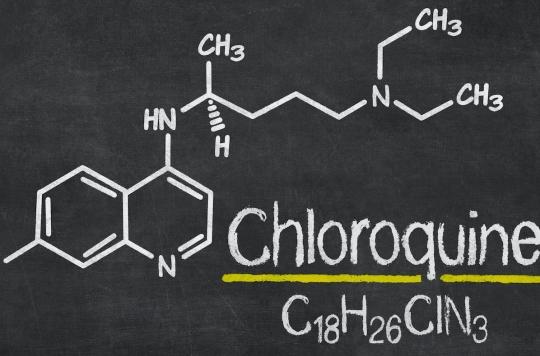This Thursday, the Minister of Health Olivier Véran authorized the prescription of chloroquine in the hospital to treat Covid-19 in a decree published in the Official Journal.

Chloroquine may be prescribed by doctors without waiting for the results of ongoing clinical trials to test the effectiveness of this treatment. It is a decree published in Official newspaper by the Minister of Health Olivier Véran who authorizes it and specifies that “hydroxychloroquine and the lopinavir/ritonavir combination can be prescribed, dispensed and administered under the responsibility of a doctor to patients affected by Covid-19, in the health establishments which care for them, as well as for the continuation of their treatment if their condition allows it and with the authorization of the initial prescriber, at home.”
Chloroquine on trial
Chloroquine is an antimalarial treatment used by Professor Didier Raoult, director of the University Hospital Institute (IHU) in Marseille to treat Covid-19. The latter is campaigning to use it massively in our war against the pandemic and the government has launched a test, Discovery, to study its effectiveness on a larger scale. However, before the first results, which should occur in the next six weeks, the Minister of Health has authorized the use of this solution if the doctor deems it useful.
Chloroquine is intended for patients seriously affected by Covid-19. Despite the first promising results, this molecule is not unanimous among medical professionals. Thus, the Academy of Medicine recalled that “Faced with the Covid-19 pandemic, the rapid progression of which is causing high morbidity and mortality, we do not currently have a proven drug treatment for the infection. In this context, it is necessary to remember that the use of a new treatment, even if it is based on a molecule already used in medicine for more than 70 years, must comply with a scientifically established methodology which calls on rules codified.”
For Professor Didier Raoult, chloroquine must be used early in the disease. “The first line of defense, innate immunity, relies on the attacked cells, capable not only of alerting the immune system to orchestrate its global response, but, in addition, a group of particular immune cells (dendritic cells) produce interferon with proven antiviral propertiesaccurate to Figaro Professor Éric Vivier, professor of immunology and coordinator of the Marseille Immunopole cluster. Only then does a stronger immune response occur. After about a week, neutralizing antibodies appear which confirm the infection..”
.
















